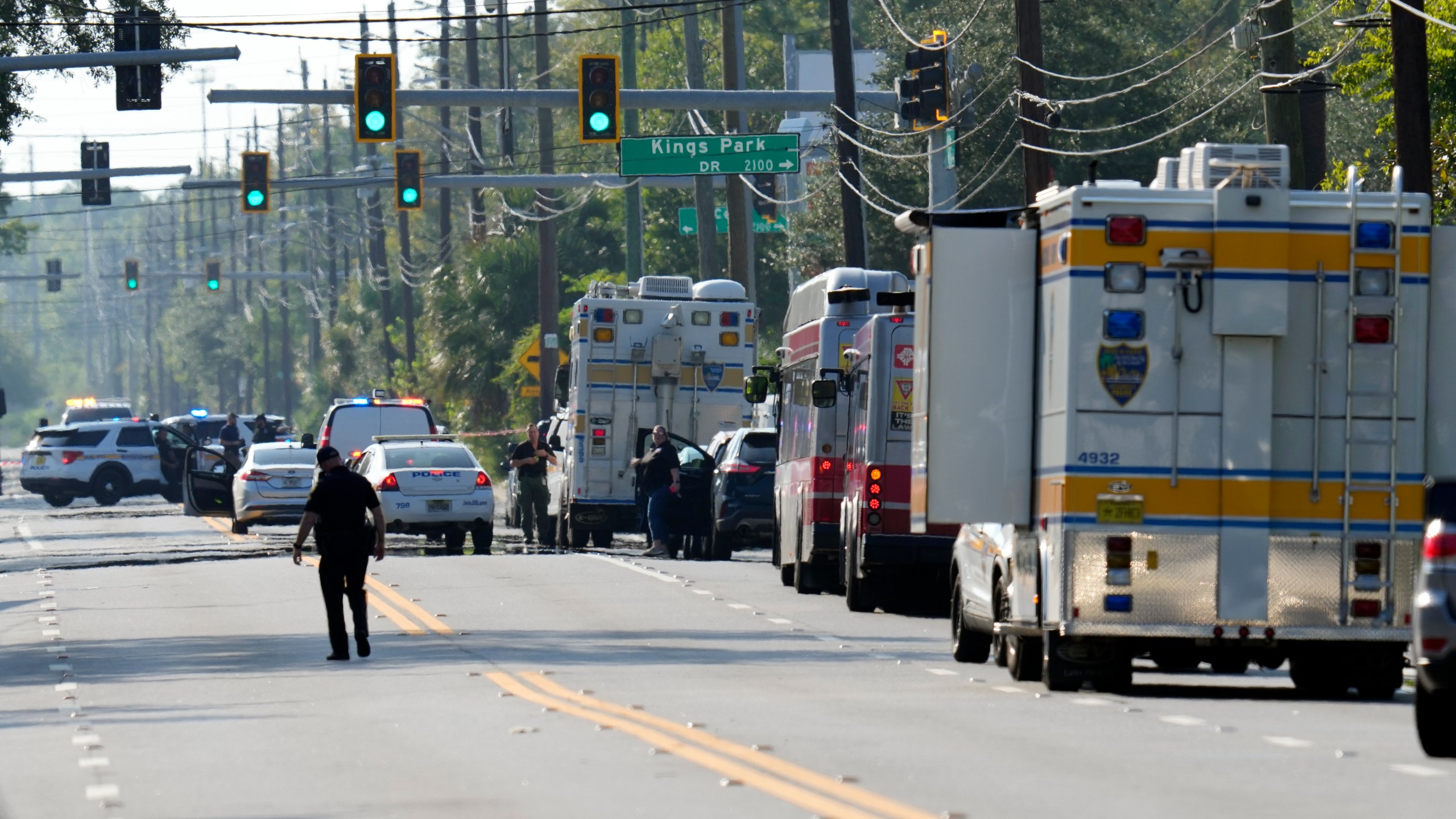States
Racist Florida Shooting Heightens Black Mental Health Concerns, APA President Urges Action

Racist Florida Shooting Heightens Black Mental Health Concerns
In Jacksonville, Florida, Another racially motivated atrocity rocked the country on August 26. Three innocent Black people were shot senselessly by a white offender, raising questions about Black pain and loss. Thema Bryant, President of the American Psychological Association (APA), commented on the event, highlighting racism’s widespread psychological impacts on mental health.
Bryant noted considerable evidence showing how racism causes stress and suffering in a statement. She said the frequency of sadness, anxiety, posttraumatic stress symptoms, and physical problems, including headaches, nausea, and body pains among Black Americans in Jacksonville and nationwide. Bryant recommended coping methods for systematic racism’s intergenerational traumas. Self-care, community support, creative expression, writing, chats with loved ones, spiritual coping mechanisms, professional mental health help, and advocacy and activism were these.
The statement also called for evidence-based solutions to the nation’s gun violence, calling it a public health problem. Bryant underlined the need to end racial prejudice-based violence. Her call to action demanded tighter gun legislation and a commitment to end racism and prejudice. Bryant promoted constructive discussion, community development, justice, and dignity-based peace.
The APA supports the rising need to address systemic challenges and protect everyone’s mental health and safety, regardless of race or ethnicity. Bryant’s statements underscore the need for fast and concrete actions toward a more equal and just society as the country recovers from another tragedy.
Racist Florida Shooting: Black Americans’ Chronic Trauma And Mental Health Issues
The recent racially motivated shooting in Jacksonville, Florida, has revived conversations concerning Black communities’ trauma and mental health issues. Thema Bryant, Ph.D., President of the American Psychological Association (APA), said that racism has long caused Black Americans to worry and sorrow. Racism may cause melancholy, anxiety, posttraumatic stress, and even headaches, nausea, and bodily pains, according to studies. Bryant stressed the critical need to acknowledge and manage these lingering psychological scars, arguing for a holistic strategy that involves individual and community support, professional mental health assistance, and activism.
The Black Community Needs Complete Coping Mechanisms And Support Systems
Bryant’s remark stressed the significance of building a solid support system and developing appropriate coping strategies in the Black community in light of racial prejudice. Bryant noted the need for self-care, community support, and creative expression via journaling and the arts, acknowledging systematic racism’s profound intergenerational wounds. She also stressed the necessity of open communication with loved ones, spiritual coping mechanisms, and seeking professional mental health help when needed. Bryant encourages Black resilience and camaraderie by pushing for a holistic strategy that mixes personal well-being with communal strength.
Urgent Call For Systemic Change And Partnership Against Racism And Gun Violence
Bryant’s speech also demanded fast and meaningful action to address racism and gun violence. Bryant stressed the need for evidence-based solutions, stricter gun control regulations, and a determined effort to address systematic racial discrimination. Her passionate call for a more fair and equitable society stressed the need for constructive conversation, community development, and peace based on justice and respect for human dignity. Bryant’s words remind us of our collective responsibility to create a society that values diversity and protects everyone’s rights by advocating for a comprehensive approach that addresses both racism’s mental health effects and the systemic changes needed to end racial prejudice.
Read Also: Jefferson County Prosecutors’ Discrimination Allegations Addressed By State Attorney
Addressing Systemic Racism’s Social And Economic Effects
Thema Bryant’s powerful remark highlights systematic racism’s complex social and economic effects. Beyond the psychological toll, racism frequently affects other areas of life, worsening Black inequities in education, work, and healthcare. Bryant advocates for comprehensive policy initiatives to address structural disparities and provide fair access to resources, jobs, and decent healthcare. Bryant’s call to action emphasizes the need for structural changes to create a more inclusive and equitable society by addressing the interconnectedness of racial prejudice and socioeconomic disadvantages.
Educational Initiatives And Intergroup Dialogue Promote Empathy
Thema Bryant highlights the need for education and intergroup discussion in developing empathy and awareness of racism’s effects on the Black community in her talk. Bryant emphasizes the transforming potential of information and attention and the necessity for comprehensive educational programs that foster cultural competence, inclusion, and a nuanced understanding of racism (past and present). Bryant emphasizes fostering a culture of empathy and compassion by encouraging open and honest conversations between people from diverse backgrounds. This is a crucial step toward building more inclusive and cohesive communities that value diversity and celebrate cultural richness.
Engaging Community-led Advocacy For Long-term Change
Thema Bryant also emphasizes the importance of grassroots campaigning and community-led activities in bringing about enduring social change. Bryant emphasizes community participation, grassroots organization, and lobbying to solve structural challenges perpetuating racial prejudice and injustice, recognizing the power of collective action. Bryant stresses the transformational power of community-driven programs to promote social cohesiveness, equality, and disenfranchised voices by enabling people and communities to change. Her call to action inspires communities to unite, use their power, and campaign for laws and practices that honor the dignity and rights of all people, regardless of color or background.













You must be logged in to post a comment Login